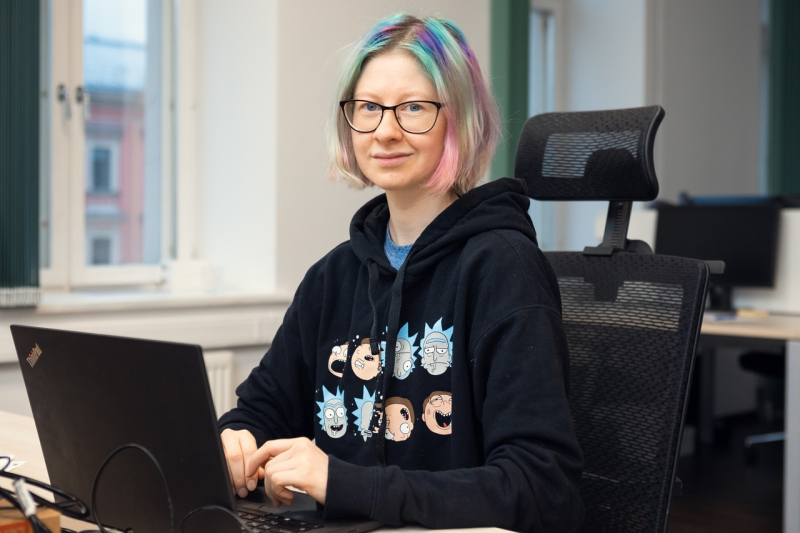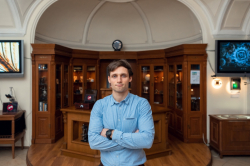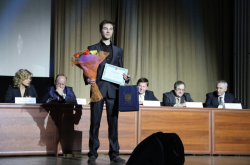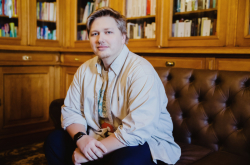Can we start by talking a bit about your background before ITMO University? Prior to enrolling in the science communication Master’s program at ITMO, your professional activities lied in a field that arguably was entirely different from journalism...
Yes, my life underwent quite a U-turn back then. Before enrolling at ITMO, I studied at St. Petersburg Electrotechnical University “LETI” with a major in quality management. This is a field that requires you to be able to adjust processes at manufacturing facilities or companies – we were trained to become something between managers and engineers. After my Bachelor’s, I enrolled for a Master’s degree in the same field, because I liked the education I was being given. We were taught by proficient lecturers that had a good command of English and connections with international colleagues. But later in the course of the studies, I realized that this specialization wasn’t exactly my thing.
At the end of the first year of my Master’s, I got into a summer school where I met Dmitry Malkov (co-founder of the Association of Communicators in Education and Science (AKSON), analyst at ITMO’s Center for Science Communication – Ed. note). He spoke about science communication in general and the new Master’s program that had just opened at ITMO. I didn’t make it for the first intake but was so excited about this field that half a year after, I decided to leave quality management. I was, of course, told by the dean that I’d regret it. But in the end, I didn’t, even in the slightest.
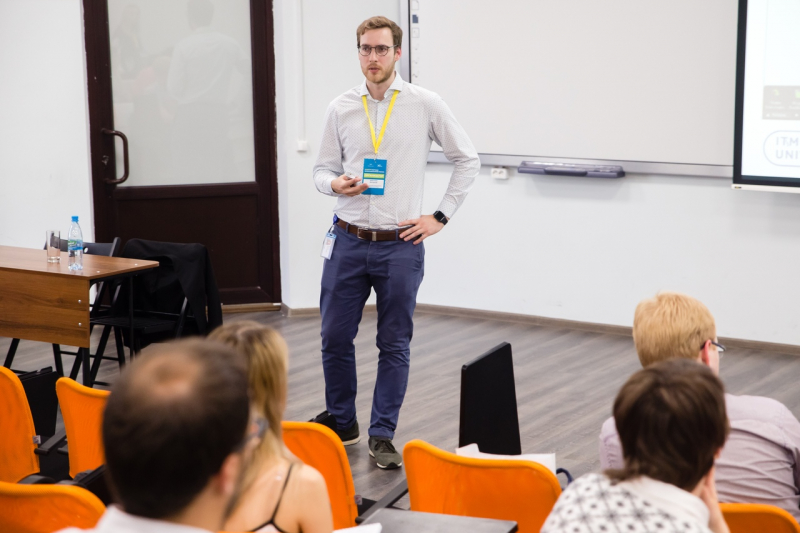
So it’s possible to say that you had no experience in science communication before that summer school?
It has to be said that science communication is an umbrella term, it encompasses different fields, so it wasn’t exactly so. Before the school, I did have some experience of organizing popsci events – for example, I worked on the 15x4 project in St. Petersburg (15x4 is an international movement of young scientists and science enthusiasts who deliver popular-science lectures – Ed. note). The team runs this project on the volunteering basis in Russia, Ukraine, some European countries. Of course, I’d read popsci literature, I’ve always been interested in this field. But never could I have imagined that I’d pursue this field academically, immerse myself into other spheres, be doing medical journalism...
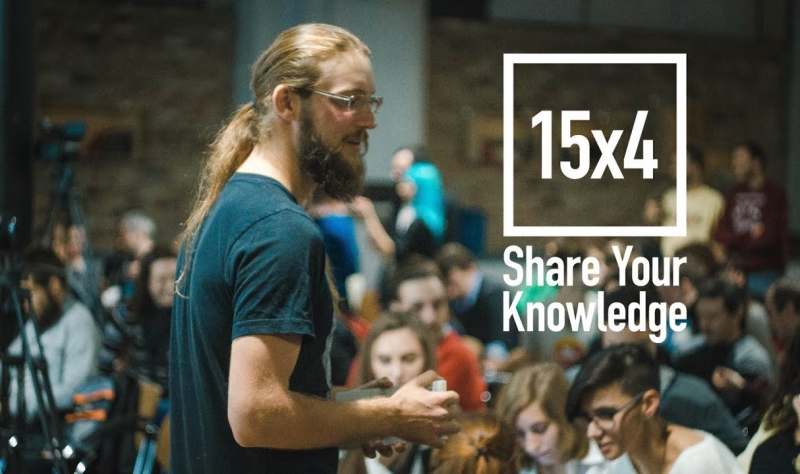
When did you realize what you wanted to do career-wise?
It took a while. In my first year as a Master’s student in science communication, I thought that I was going to work with kids and help them develop critical thinking skills – at least this was the plan back then. But then I was offered an internship at the Cancer Prevention Foundation and this was when I realized that I wanted to work in this field and got into medicine.
On top of that, there were some family problems that had me looking for a good doctor. My partner was experiencing severe pains in his back, and everyone told him that this was just scoliosis. But in the process of studying this topic, reading specialized literature on rheumatology, I understood that this was something entirely different. All symptoms pointed to ankylosing spondylitis, which was later confirmed in a medical appointment. This was like some sort of a release trigger for me, I suddenly started realizing how important it was to be an informed patient in Russia and to promote this idea among the members of the public.
That internship at the Cancer Prevention Foundation laid the basis for my career as a medical journalist. After the internship came to an end, they invited me to work with them, and that was when Marianna Mirzoyan, editor of the telegram-based project “Wet your Mantoux” about evidence-based medicine and medical journalist at Medusa, offered me to write some articles for them. This was a huge step into this field which allowed me to get a deeper understanding of how things worked in it and learn from the professionals.
Parallel to that, you were continuing your university studies. What knowledge that you obtained during your Master’s came in handy in your work?
On the one hand, our training was rather academic, on the other – it offered opportunities for global networking. We had a large number of lecturers, and not all of them delivered full courses – some were invited experts. Considering that Dmitry Malkov himself graduated from a European university with a scicomm degree, he has a clear understanding of what this field is about in Europe, where it has long been in development. This enabled him and the program’s coordinators to provide us with the academic tools operated by science communication professionals, including scientometrics, different sociological tools. Generally speaking, the program included various subjects from the entirety of which each of us could assemble something that corresponded to their interests and aspirations. And, having graduated, we indeed all went different ways career-wise.
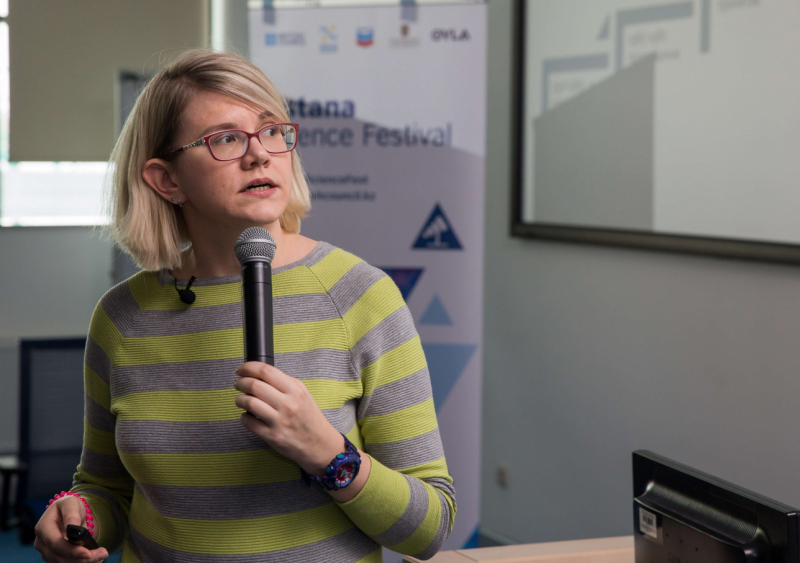
As for the things that I gained as a result of this program, this is, first and foremost, knowledge in the field of science journalism. By this, I don’t mean writing skills, as it is mostly acquired through practice. But in general, I learned lots of useful things important for working in this field, as well as about how research is conducted and so on.
But other knowledge that I gained thanks to the program was also useful – all of this allowed me to gain an understanding of the environment I was in, who to approach for help if I had a project.
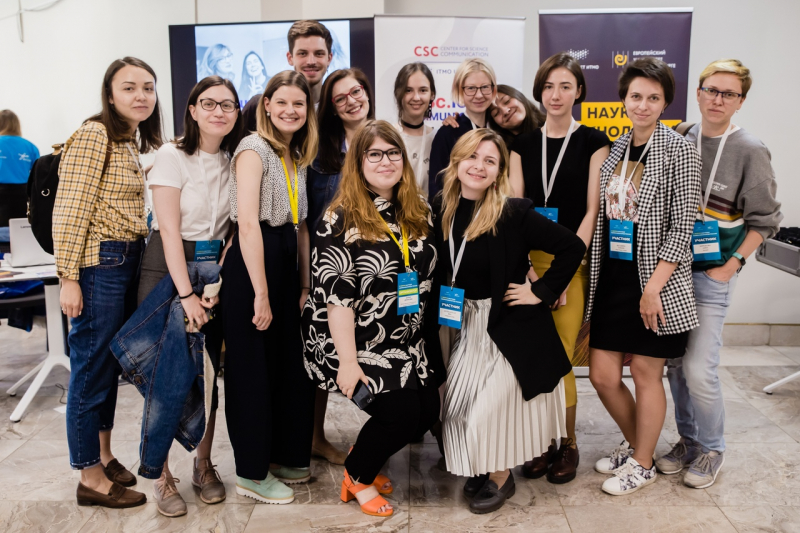
In what way is the work of a medical journalist different from the one of a science journalist? What needs to be taken into account when preparing an article?
At the Cancer Prevention Foundation, the lion’s share of my time was spent on preparing interviews and directly communicating with experts. Then, also at the Foundation, I began writing more in-depth original content and independently figuring out what was reliable information and what wasn’t, and what was the best way of communicating the facts to the readers.
But in general, in my opinion, what makes medical journalism different from science journalism is that in our work we don’t rely on research articles that much, except for meta-analysis and some huge research. The rest are international recommendations and guidelines that include the research conducted and analyzed by experts, who made conclusions regarding the efficiency of particular treatment methods, as well as their benefits for the patients in the long term, financial aspects, etc. This is a somewhat different level of information. And this is probably one of the main things that I’ve learned while working in the field of medical journalism.
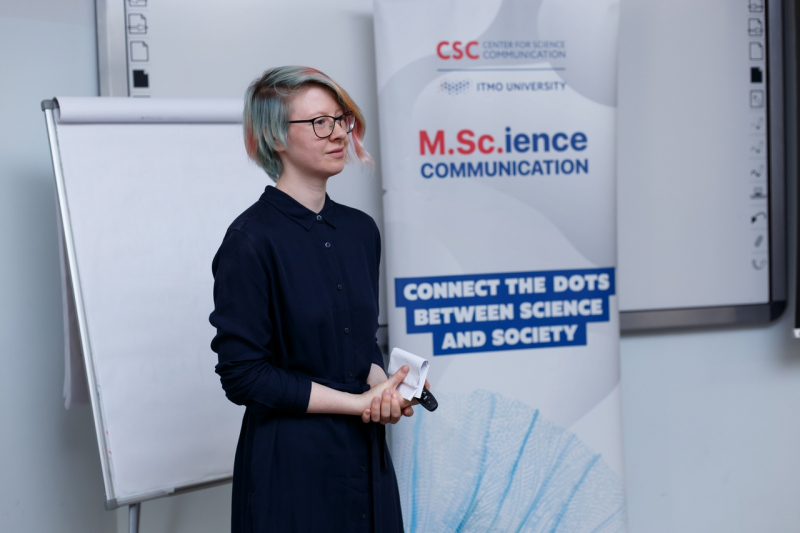
Going back to the topic of informed patients… The internet abounds with information that’s controversial and, at times, even fake. How is a regular user to go about all this?
Unfortunately, if we search for something in Russian, there’s a high likelihood that we encounter some very shoddy data. The best option is to have a number of reliable sources you can trust. But if you don’t know any, the first thing you need to do when encountering an article is to check whether it has references to back up the information it contains. If, upon clicking on those, you discover that the links lead to other articles on this website and the information is just cyclically rotating within one resource, something’s wrong. The references should lead to serious medical sources, most often English-language ones.
Of course one should definitely grow suspicious if the article is explicitly trying to sell you something that is promised to cure all your diseases in a mere five minutes.
Regrettably, there’s not a lot of information in the Russian language that’s built on the principles of evidence-based medicine. Perhaps apart from Meduza, Prosto Sprosit, Profilaktika.Media and a couple of other sources that sometimes write about medicine, good content is few and far between. That’s why I’d recommend reading English-language sources. For example, the UK’s National Health Service (NHS) has come up with a great website for patients. If reading English-language content is hard for you, you can use an online translator, which hopefully will allow you to understand texts of this level.
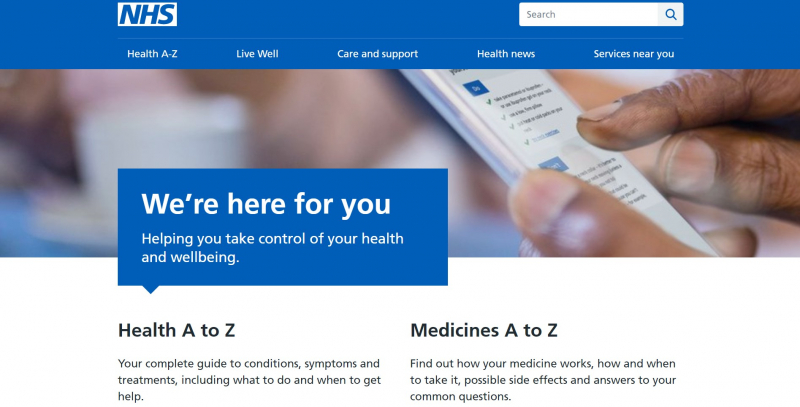
I also recommend checking out medlineplus.gov, an American website for patients of National Healthcare Institutions in the US, and uptodate.com/patients, a database of medical articles on different topics for physicians and patients.
In your opinion, why is the quality of resources in Russian much lower than those in English? What needs to be done to change this situation?
It’s hard to tell; it could be that this reflects the quality of the healthcare in the country at large. For something to change, I think there has to be pressure from all sides. We, medical journalists, try to inform patients. And this is where my professional duty lies, however pompous that sounds. Our task is to give people an understanding of what’s good and what isn’t, so that they’d come to their medical appointments and wouldn’t be afraid to ask questions about why they were prescribed this or that treatment, wouldn’t be afraid to seek out good doctors, so that, ultimately, they’d be these informed patients and would actually care about their health.
For example, I sometimes recommend a particular doctor to my friends and they say that this is way too expensive for them. The thing is that people don’t fully understand that trying to save money on healthcare may end up badly, even money-wise, because they risk bumping into a doctor who will prescribe them a whole lot of unnecessary tests and additional appointments that they don’t really need, which will result in even larger expenses.

In our texts, we try to cover these and other aspects, provide our readers with useful information that would help them navigate different treatment methods, and attract attention to the preventative action side of things. The latter is also very important, because people in this country don’t really like going to the doctor and only come in when the situation nears critical.
As for the education of doctors, I don’t think that we can solve this problem. The only way our articles can make a difference is when they are read by school students who will then become doctors and will use this knowledge in their future work.
But in general this problem leads us to the necessity of changing both the education and the compulsory health insurance systems, because it’s clear that the workloads that we have are conducive to quick professional burnout in medical personnel. There are lots of factors that need to be considered here.
Please tell us about your current projects.
As of now, I’m working at SeverGroup Medicine, this is the company that owns the Scandinavia and Scandinavia AVA-PETER clinic chains. To be more precise, lately I’ve been focusing on preparing a large body of texts for a new blog. We hope this to be a useful source for patients. We’re also overseeing internal newsletters and help writing texts for social media and the clinic’s website.
Parallel to that, I would like to continue investing in my self-development. There’ll soon be a new track in the Master’s program in science communication, dedicated to communication in biomedicine. I would like to continue attending lectures. I’m also thinking about launching a small practical course for students together with my colleagues.
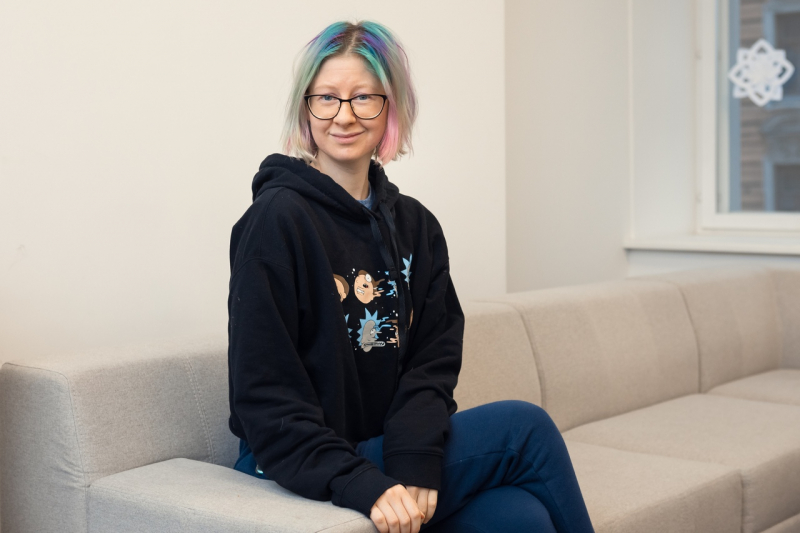
As highlighted by the specialists at the Center for Science Communication, the main reason for opening this track was the demand for scicomm professionals, PR specialists, and journalists specializing in this particular field. You’re already working in this field; do you personally see this demand? How would you evaluate it?
I think that, in general, I’m very lucky to have gotten into this field, because, as practice shows, there is a demand for highly qualified medical specialists out there. Yes, for sure, there are people who professionally focus on medicine and biology and write articles about these topics in the evenings, and with time, manage to do it really well. But they can’t dedicate all of their time to this. In my experience, there’s really not a lot of medical journalists who work full time.
One reason for this could be that there are no educational courses that would provide a successful introduction to this topic. Medical journalists are a rarity, these are people who’ve been educating themselves for a long time. For instance, I started reading medical journals when I wasn’t even planning to do this kind of thing professionally.
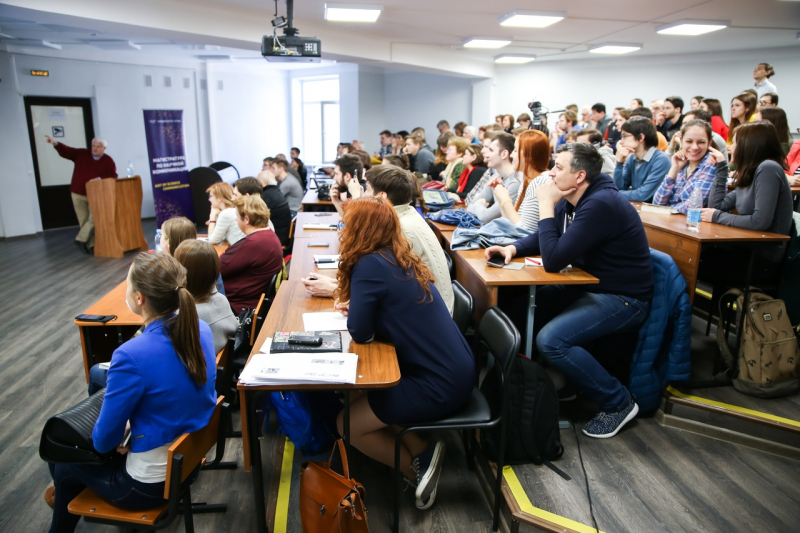
On the other hand, there is a demand for such specialists among both clinics and biotech companies. I hope that this trend will remain in the future. Particularly thanks to the new specialization in the Master’s program in science communication and the fact that a lot of good specialists are entering the market right now.
It’s possible to provide an example that’s far from the medical field. There’s a programming language called Haskell, but haskellites, in other words people writing in this language, are like gold dust. On the one hand, the market wants to use this language in some of its products, but at the same time there’s a lack of specialists which hinders the development of this field. But people who would potentially want to learn Haskell see that there are no relevant job openings on the market and this de-motivates them from actually doing it, which creates this kind of a deadlock. I hope that medical journalism will avoid this fate and this field will develop and grow in the future.
